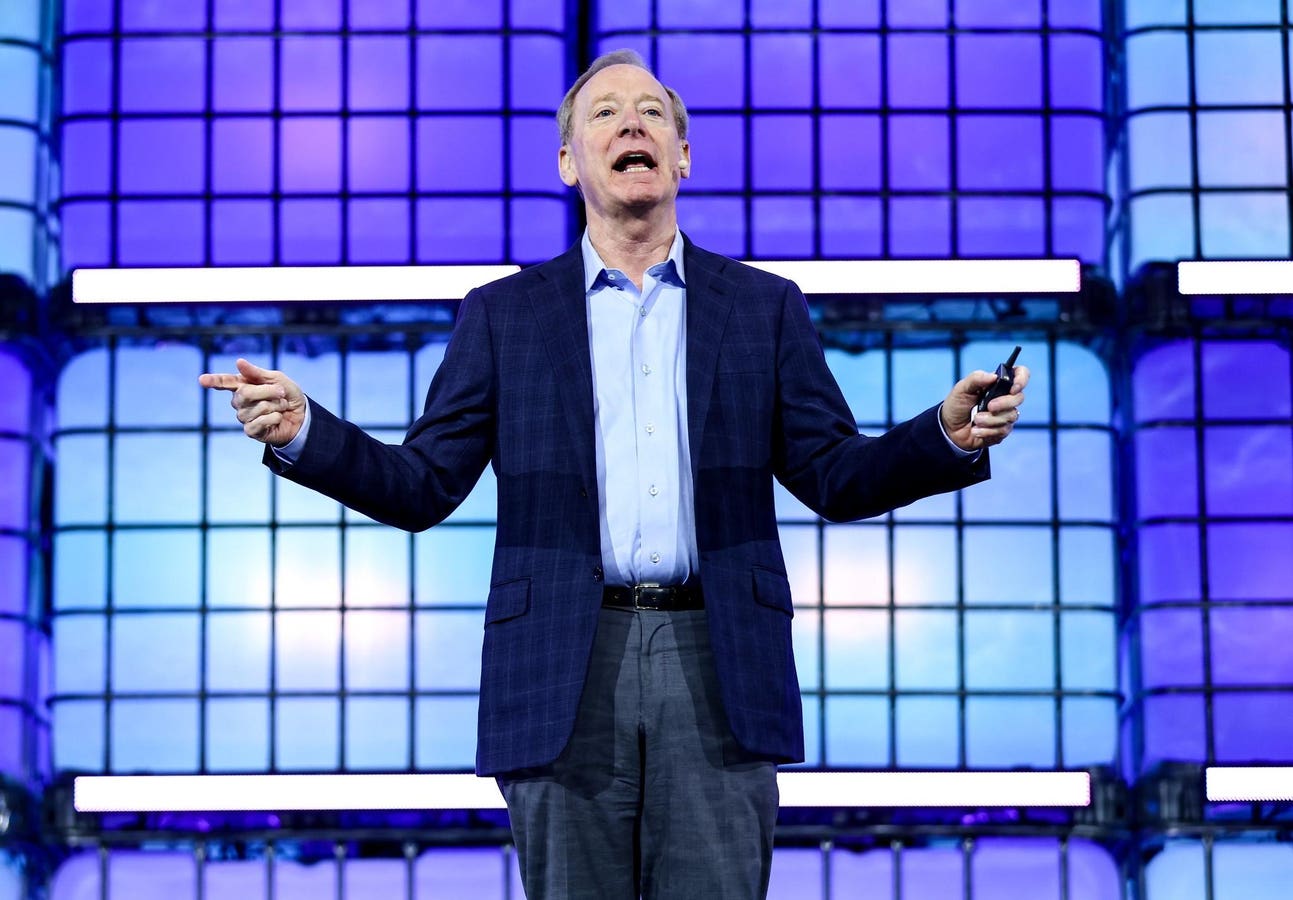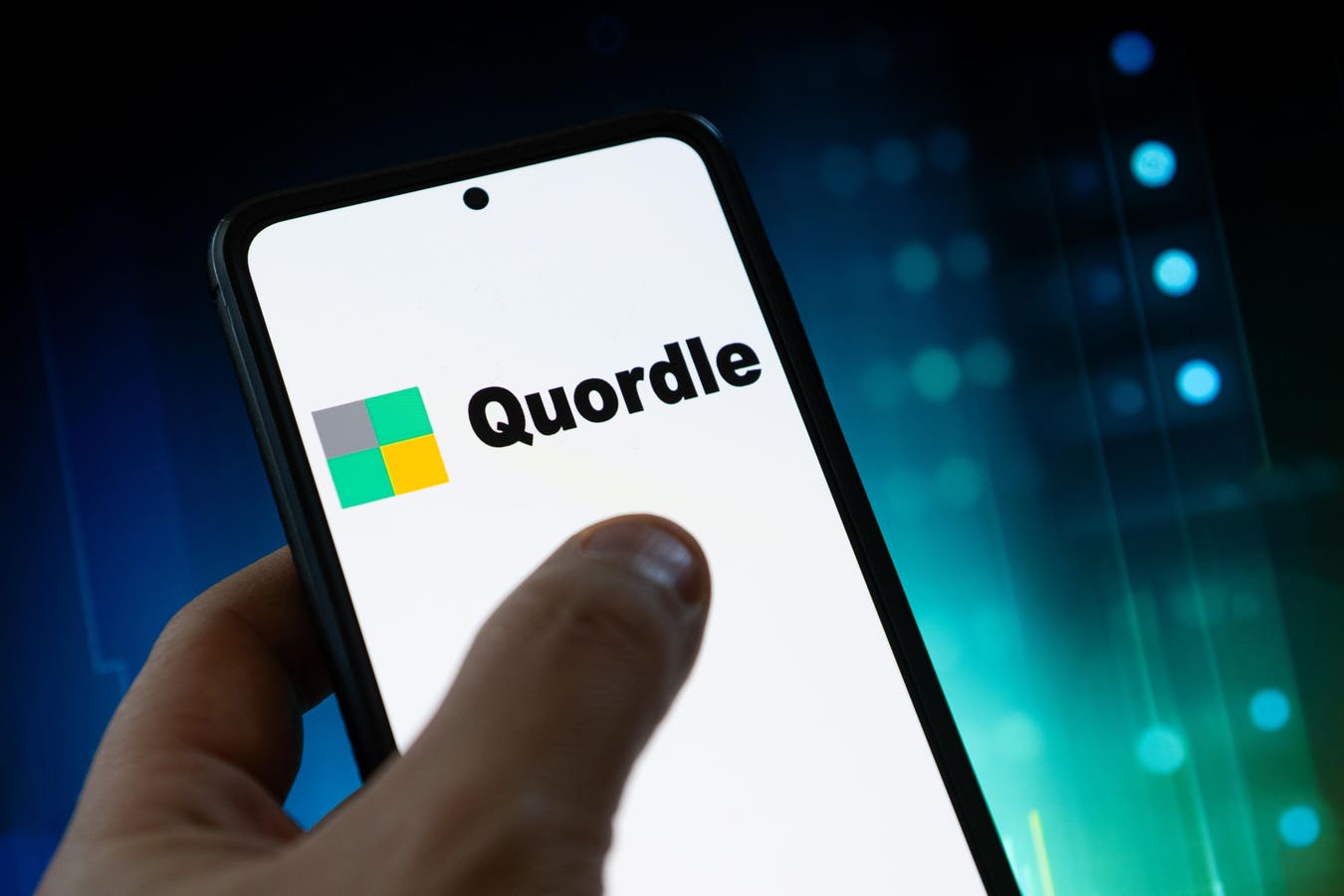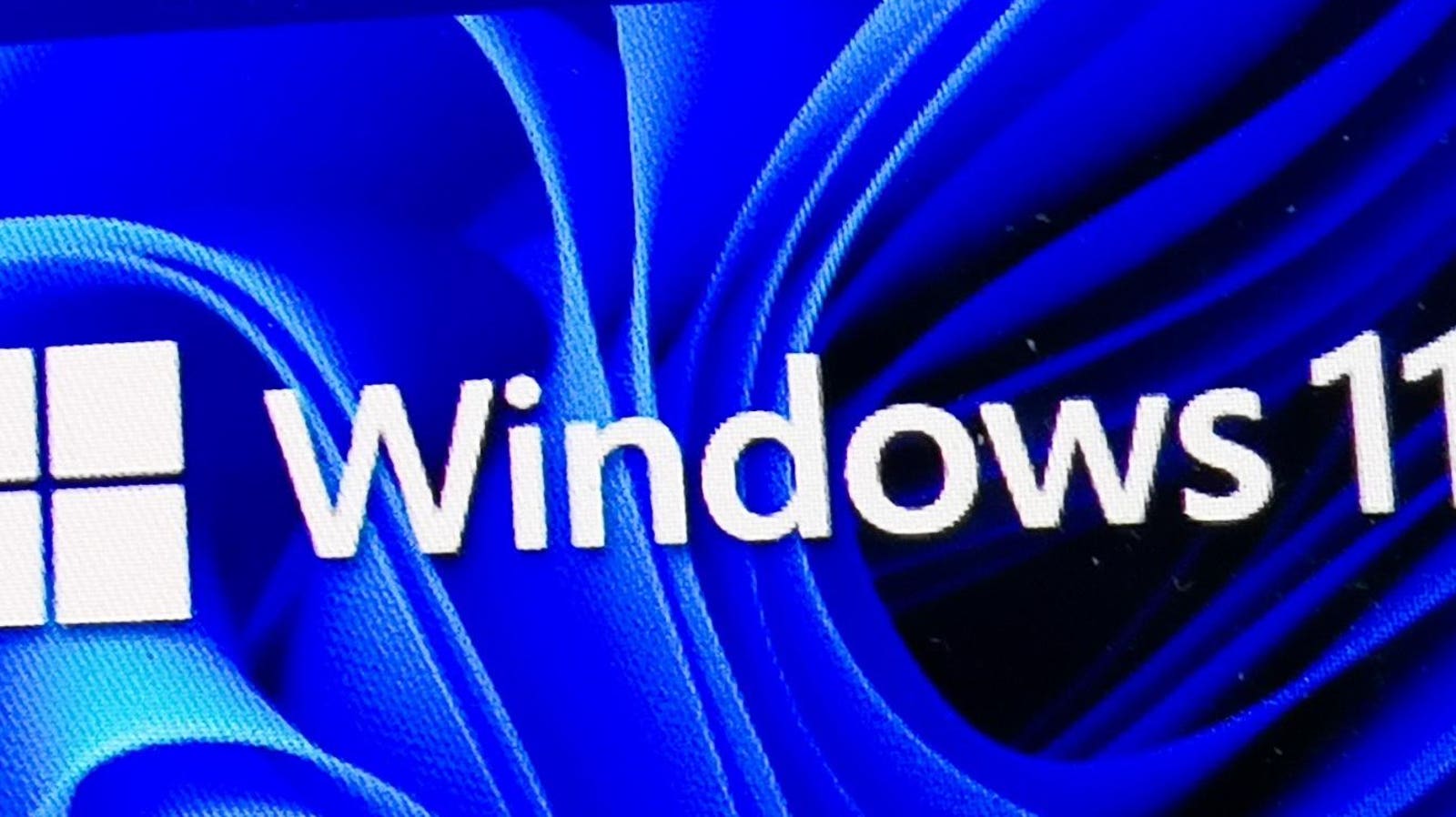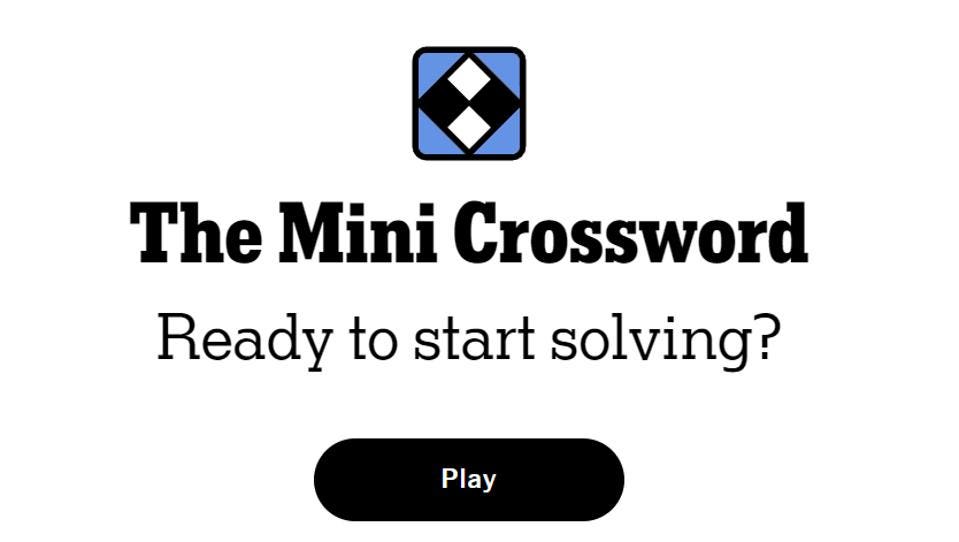Microsoft president Brad Smith on stage at Web Summit Vancouver.
AI is the next great general purpose technology that is creating a new economy, Microsoft president Brad Smith said Wednesday at Web Summit in Vancouver, Canada, comparing the changes that artificial intelligence will bring to those we’ve seen from electricity. He added that Microsoft is investing $80 billion this year alone to create the infrastructure layer that will help diffuse AI technology to businesses and people around the world.
He noted that the new economy will come with new challenges. “Are we trying to build machines that are better than people, or are we building machines that will help people be better?” Smith asked.
While we remember the massive changes that electrification started 140 years ago, we tend to forget that a technology doesn’t change the world by itself. It requires, Smith said, an entire ecosystem of supporting infrastructure and technologies: a tech stack.
For electricity, that’s well-known:
- Fuels
- Power generation
- Electrical grid
- Transformers, circuit breakers
- Wiring, switches, sockets
- Appliances
- Manufacturers, marketers, users
For AI, the supporting ecosystem or tech stack is built in three layers
- Infrastructure
- AI datacenters
- Chips
- Land, electricity, connectivity
- Platform
- AI software platforms
- Data
- Foundation models
- Applications
- AI-infused software
- AI-powered devices
We often forget about the appliance layer, Smith said, but it’s a critical last-mile technology to bring the benefits of AI to the average person. Appliances must have felt like magic to people who started seeing them over 100 years ago, and “140 years later we have our own opportunity to create things that feel like magic,” he said.
“We’re building the world’s next Industrial Revolution,” Smith added. “And we have an opportunity to make it better than the industrial revolutions that we’ve experienced before.”
Talking about the world’s next revolution inevitably increases anxiety as people wonder if they’ll be replaced by AI. Microsoft itself is replacing people with AI agents in sales and service roles, as are companies like Amazon, Meta and Salesforce, as Forbes contributor Gene Marks wrote. Companies like Klarna, UPS, Duolingo, Intuit and Cisco are doing the same.
Many jobs are at risk, and others have already been lost.
Smith, however, said Microsoft is about building technology that will help people pursue better jobs rather than building machines that will outperform people.
The key, he added, is working on “skilling” people for the emerging economy and jobs it will create.
The challenge, as he noted, is that there are still hundreds of millions of people globally left out of the revolution in electrification that started 140 years ago.
Achieving precisely the same result in the new AI revolution is probably going to happen too, absent massive education, training and perhaps significant changes in how our economy functions.








